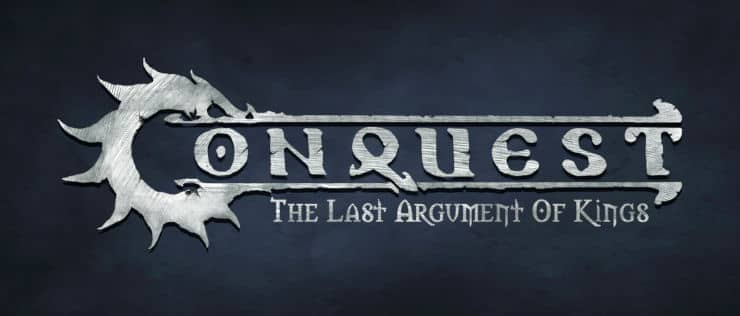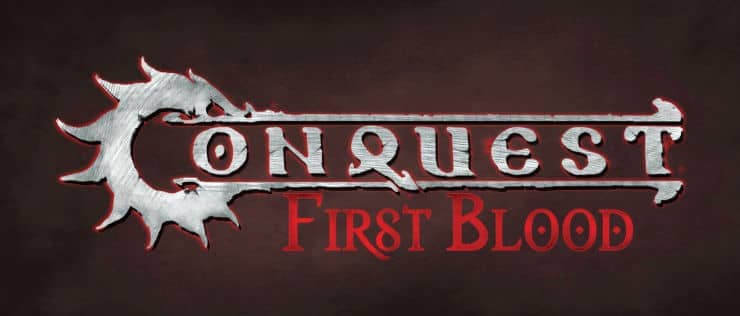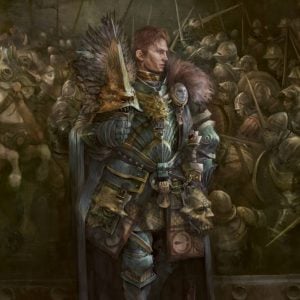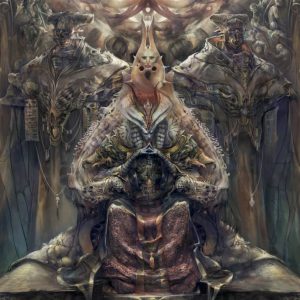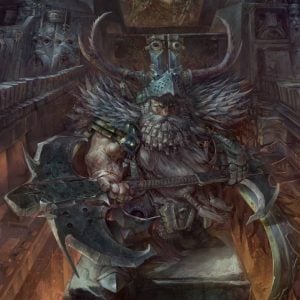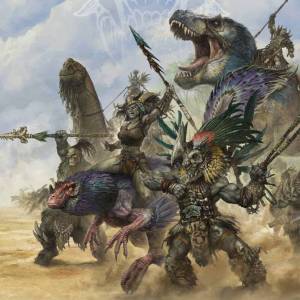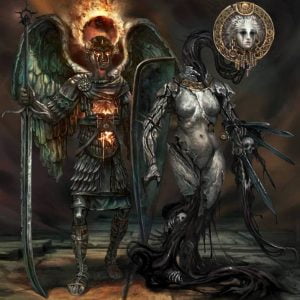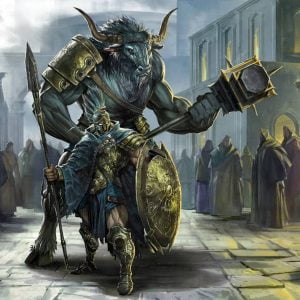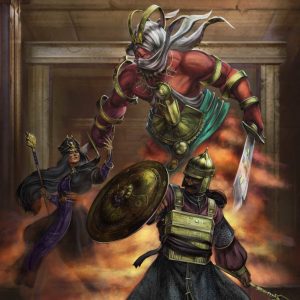
One has but to catch a glimpse of Pallas, crown jewel of the City States, to understand the awesome power that the Scholae wield. Its towering white walls gird the city like the arms of a lover as the gold cupolas of its trading houses shine day and night under the glow of the flaring phlogiston stacks that rise through the city like the dreams of a maddened genius. Crowning this vision and rising from the center of the city in a vision of white and gold, lit by the lurid lights of its own accomplishment, is the Acropolis upon which rests the Lyceum, seat of all power in the City State and beyond.
Pallas is the city around which all City States have been modeled, a shining beacon to the potential of mankind and the vision of its founder, Platon. Unfortunately, despite his best efforts, Pallas remains a rare jewel amongst the City States, true to the vision and principles to which it was founded while other cities have strayed. Some, like Helias or Rhodea have merely lost focus, but others like Acheron or Leutria have completely abandoned the Scholae and their gifts and embraced the power of the gods and masses, respectively. And at the heart of this Schism lies the mad ambition of their founder and his hubris.
When Constantius Domulexor envisioned his dream of a mankind free of the yoke of worship, he knew well that one could not forge this dream overnight, nor perfectly. No matter his efforts, time and human nature itself would conspire to rob mankind of its own future.
Now it must be understood that, aside from the Anathematic, no other human had grasped the secrets and nature of primordial power than Constantius Domulexor. It was in fact he who coined the three principles of power that have formed the bedrock of modern primordial studies: that power corrupts, that belief is power, and that power calls power. Hurling himself into his project and studies, Domulexor worked like a man possessed. The more he understood of the twisted mind of his God and grasped the full breadth of his plans, the more horrified he became by what he witnessed. Domulexor saw that his original plan lacked the depth of conviction and scope necessary to survive Hazlia’s attention should the Anathematic fail at his deicide. His plans had to be changed, and changed radically, to ensure no menace like that ever rose again.
His efforts, the true depth and breadth of which are hidden from almost all mortal eyes but those of his Scholiasts, lacked the decades of planning and breadth of resources he had once enjoyed. With the majority of his wealth and influence tied up in the foundations of the city states and the incipient collapse of the Old Dominion, Domulexor was forced to undertake his most daring and dangerous project.
Delving deep into the secrets of divine power and its primordial origins, he sought to become a god who could not be corrupted by power, whether his own or his followers’. This would require that he became a weak divinity, though one that remained powerful enough to usurp his patronage of craftsmen and scholars from Hazlia – a task that he calculated would be easier now, given that Hazlia had long since abandoned those aspects to focus on his role as Lightbringer and Pantokrator.
Pressed for time, he struck upon a desperate plan. Taking on the persona of Platon, he stepped forth from his role as Maistros of the Collegia and became the patron of the City States. Venerated, but not outright worshiped in this role, he would gain the trickle of power he needed to start his plans. What unspeakable experiments, moral concessions and mental trauma he underwent can only be speculated, for all knowledge of what he did in order to succeed at his task was wiped clean.
But succeed he did. The only cost being his humanity and sanity.
Not only did he usurp the portfolio he needed from Hazlia, but further sundered his consciousness into a host of vessels, coldly reasoning that as a council he would be harder to corrupt and be afforded a better chance of spotting his own corruption. Thus was the Scholae born.
For years, even decades, this plan worked. The Scholae used the knowledge Platon had discovered and their newfound divine mantle to guide the City States into a golden age of discovery and prosperity. The City States thrived under the controlled supervision of the patron gods they installed. Their mere presence siphoning away the corrupting power of worship from him and safely drained to create Phlogiston, the incredible energy source he used to power the awesome machinery that the City States had developed under his guidance. In time the Scholae replicated itself, a copy of it having been installed in the Lyceum of every City State.
In time though, the price paid for his divinity and haste with which he moved came back to haunt him. His traumatized mind should never have been invested into new vessels, especially ones chosen for their availability rather than their compatibility. Madness slowly seeped into the councils, and with it, chaos. Contradicting orders, abandoned projects and the inhuman expectations of his followers mounted on each other. This process was particularly pronounced in those city states that had received a second generation Scholae, as the recompilation made the errors more pronounced.
Madness and paranoia crept into the halls of the Lyceum, with facets of the Scholae suspecting each other of corruption and turning on each other. With each death, the Scholae fragmented further, losing critical knowledge and information required to continue running the city. It took only a few short decades for chaos to overwhelm most of the City States.
In some, namely Leutria, Eubron and Laurion, the mobs broke into the Lyceum and, horrified by what they encountered, purged the Acropolis, and established fledgling democracies that sought to fully integrate every member of the cities’ society into governance. These cities even opened their doors to the few Bred refugees and slaves that had managed to escape the fall of the Old Dominion, granting them equal rights and a voice in the governance of the city, in principle at least.
In others, the rising frustrations of the populace turned to prayer and the weakened Scholae were unable to contain the nascent power of the patron gods. In Acheron, Tauria and Lycaon, the patron gods, awakened from their slumber to witness the truth of their own incarceration and exploitation, these nascent gods stopped only to slaughter their captors before taking command of their Cities. These cities thrive under the power and watchful gaze of their gods. With every facet of life closely aligned with the gods’ visions, their grace and blessings flow freely, but dissent is ruthlessly suppressed.
Only Helias, Rhodea and Pallas managed to avoid this fate. Here the Scholae managed to fend off the incipient madness, quarantining and sectioning off those segments of themselves that had become corrupted, staving off the growing madness. In Rhodea this manifests in the grandiose megalomania of the cities’ projects and workshops while Helias’ fixation on development and wealth have driven it to heartless extremes. Today only Pallas stands as a beacon to the vision of what the City States were meant to be.

